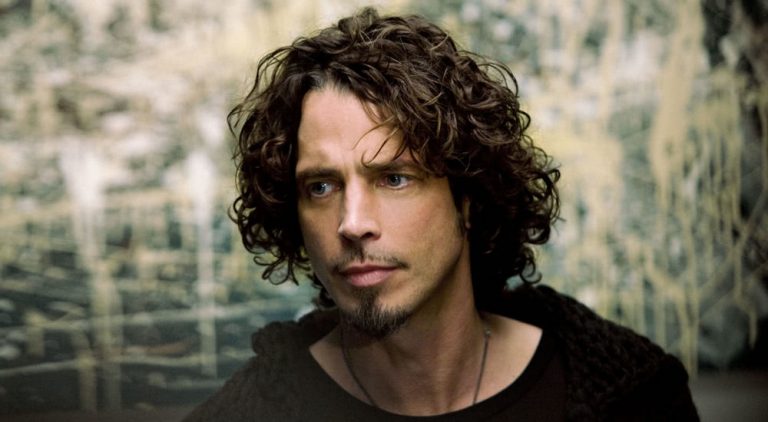In the wake of Soundgarden icon Chris Cornell’s tragic death – ruled a suicide – his widow Vicky Cornell has been adamant that the late singer didn’t intend to take his own life that night, and has insisted in various public statements that his passing was a result of the influence of substances on his mind.
Now, in her first interview following the incident, Vicky has revealed further details of his final moments, reinforcing her opinion that a relapse into addiction caused his death, and insisting that “he didn’t want to die”.
“If he was of sound mind, I know he wouldn’t have done this,” she told People. “My Chris was happy, loving, caring and warm. This was not a depressed man — it wasn’t like I missed that. What I missed were the signs of addiction.”
Vicky believes that she let her guard down, not noticing the signs that Cornell had fallen into dangerous patterns following his sobriety in 2009.
“I relaxed, I guess,” she says, adding that his sleeplessness despite his prescription for sleeping aid Ativan was, in hindsight, “a sign something was off.”
Cornell had contacted his wife following Soundgarden’s show in Detroit, waking her up in the couple’s home by using his phone to flash their lights remotely, prompting her to call him.
Finding that he was “on a rant”, Vicky tried to find out the cause of his distress. “I said, ‘You need to tell me what you took,’ and he just got mean,” she says. “That wasn’t my Chris.”
“Addiction is a disease. That disease can take over you and has full power,” she says, noting that Cornell’s bodyguard had informed her that he was taking twice the usual dose of Ativan, which can in rare cases have depressive side effects.
“I’m going to do everything in my power to make sure other children don’t have to cry like mine have cried.”
Despite the autopsy and toxicology report finding elevated levels of the prescription drug in Cornell’s body following his death, the coroner ruled that “drugs did not contribute to the cause of death,” noting that the levels were below the threshold found in the deadly incidents associated with over-medicating.
Both of Chris’s daughters shared their own statements on their father recently, while countless figures in the music community have paid tribute, from his former Audioslave bandmates to his “brother” Eddie Vedder.
If you or somebody you care for needs help or information about depression, suicide, anxiety, or mental health issues, contact Beyond Blue on 1300 22 4636 or Lifeline on 13 11 14.

Chris Cornell’s final music video, ‘The Promise’




































